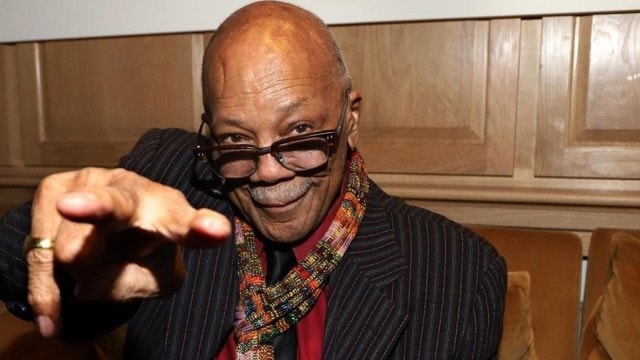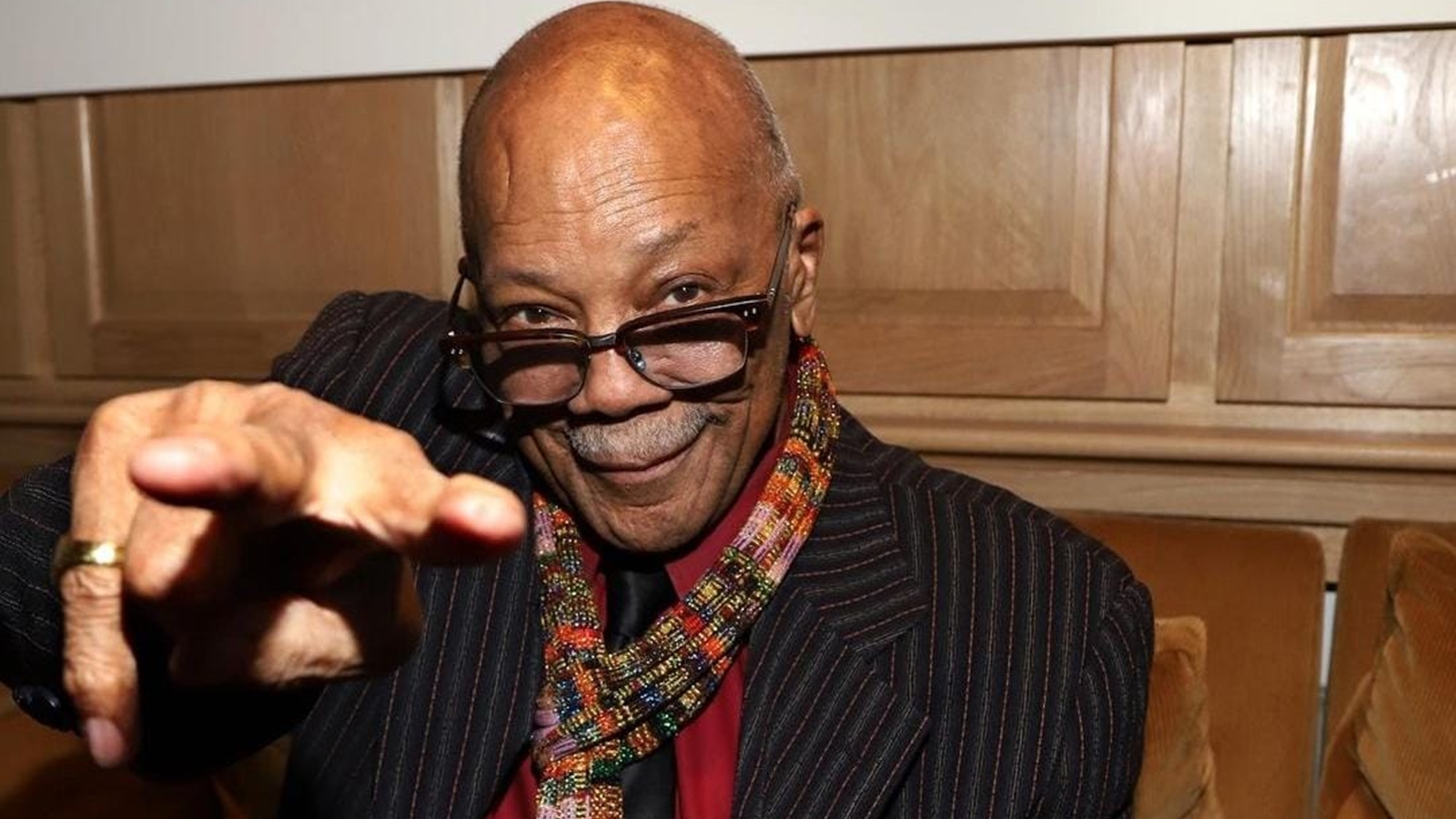
Watching TV in the late ’90s, I saw a scrawny man in a white suit and hat, with curly locks dancing in a way I had never seen before. All of 10 years old, I tried to keep up with him and his troupe of dancers, falling several times on my face when they leaned forward 45 degrees with their feet magically planted on the ground. All this, behind a driving synth hook, groovy bassline and a thumping beat. The man was Micheal Jackson and the song was Smooth Criminal, from the 1987 album Bad. Much later, I would learn that what I was listening to was produced by Quincy Jones, the legendary American music producer, composer, arranger, songwriter and film and television producer.
Jones died at age 91 in his California Bel-Air home on Sunday. During his seven-decade-long career, Jones produced several hit albums for iconic musicians like Frank Sinatra, Aretha Franklin, Michael Jackson, Donna Summers, Miles Davis and Ray Charles, to name a few. Quincy won several accolades for his various productions, arranging and film-scoring duties — 28 Grammy Awards (the third highest ever), a Primetime Emmy Award, a Tony Award, and nominations for seven Academy Awards and four Golden Globe Awards.
Apart from being a phenomenal jazz arranger and film composer, the producer was instrumental in America’s shift from jazz to pop music in the early 1980s. He produced the best-selling album of all time, Jackson’s Thriller, which is embedded in the musical vocabulary of modern pop and has inspired artists like Beyonce, Britney Spears, Justin Timberlake, Jennifer Lopez and AR Rahman.
However, Jones might have some difficulty while navigating today’s music landscape, considering he had infamously accused Jackson of stealing some of his songs on Thriller. In a 2018 interview with Vulture, Jones candidly said, “I hate to get into this publicly, but Michael stole a lot of stuff. He stole a lot of songs. (Donna Summer’s) State of Independence and Billie Jean. The notes don’t lie, man. He was as Machiavellian as they come.”
Today, big-ticket artistes like Justin Bieber, Dua Lipa, Ed Sheeran, Rihanna, Maroon 5 and Bon Jovi heavily rely on “interpolation” — a clever way to circumvent copyright infringement by rerecording parts of a song rather than directly sampling it. At a time when the music-making machinery is tirelessly working to create catchy formulaic pop music, Jones might be an outsider. He famously said, “I’ve never, ever in my life done music for money or fame — because that’s when God walks out of the room,” he said.
His integrity probably springs from his rough life. Jones grew up in America during the Great Depression in the 1930s, when racial violence had a strong grip on the country. As a young Black kid, who saw his father working as a carpenter for the gangster group, the Jones Boys, he too wanted to be one. Talking about a chance encounter with a piano, when his friends and he broke into a community centre in Washington looking for food, he recalls, “I touched it and every cell in my body said, this is what you’ll do [for] the rest of your life.” He might have ended up in prison or dead if he hadn’t found music, Jones confessed in an interview with rapper Kendrick Lamar in the Netflix documentary Quincy (2018). In the 1960s, with support from Martin Luther King Jr, he founded the Institute for Black American Music (IBAM) to raise funds to create a national library of African-American art and music. From being a “street rat” to becoming one of the most distinguished figures in the American music industry, Jones was instrumental in the acceptance of Black music as American music.
Through his long career, Jones never forgot his roots. He remained involved in youth advocacy and humanitarian work. In 1985, Jones produced We Are the People, written by Jackson and Lionel Ritchie, to raise aid for the 1983-1985 famine in Ethiopia. Famous for his scathing candour, Jones was often critical of the super rich for not doing enough for the deprived. In a 2018 interview with Vulture, Jones said, “They (the rich) don’t f**king care. I came from the street, and I care about these kids who don’t have enough because I feel I’m one of ’em. These other people don’t know what it feels like to be poor, so they don’t care.” Perhaps, that’s what made him different. He was a man who cared.
aditya.vaddepalli@expressindia.com
© The Indian Express Pvt Ltd
First uploaded on: 05-11-2024 at 19:35 IST



